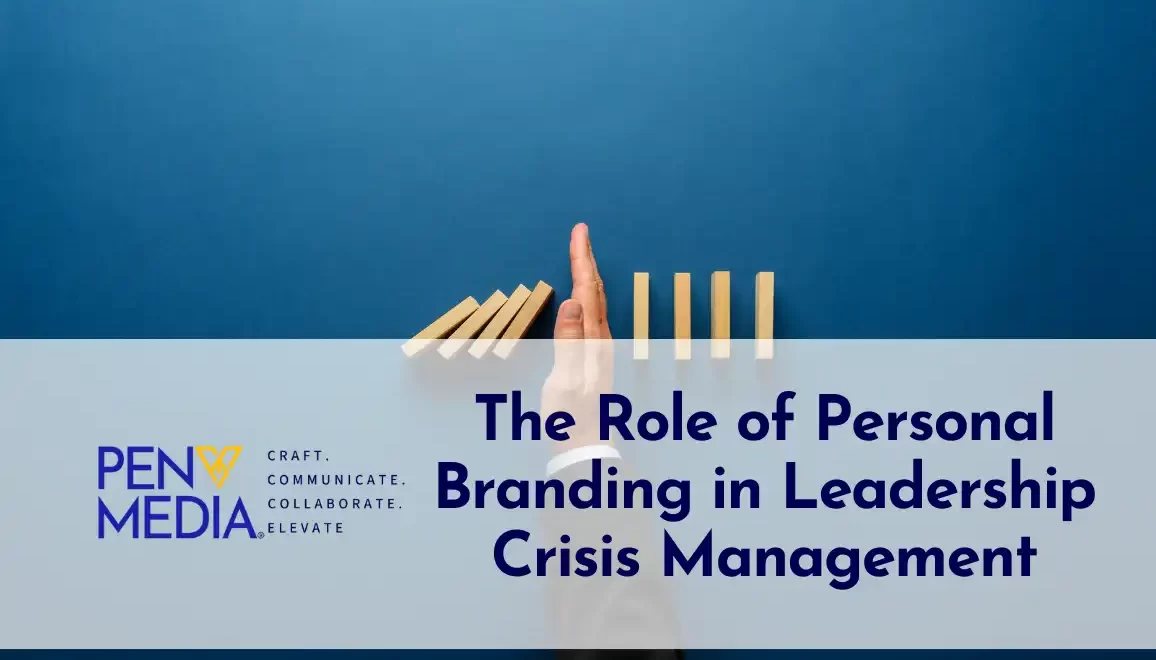Introduction
In times of crisis, effective leadership becomes paramount. Picture this: a leader who skillfully navigated a turbulent situation, leaving a lasting impact. What’s their secret? Personal branding. Let’s delve into why personal branding matters for leaders during crises and explore actionable steps to enhance it.
Understanding Personal Branding
Personal branding is the strategic practice of curating a public image to manage how others perceive you. It involves expressing your unique personality, skills, and values to control the narrative around who you are and what you offer. Here’s why it matters:
Defining Your Value
Personal branding intentionally defines and expresses your value. It’s the amalgamation of associations, beliefs, feelings, attitudes, and expectations that people collectively hold about you. Consider it as your professional reputation—what you want others to know and remember about you.
Four Key Attributes
- Accurate: Your brand should reflect the truth about you.
- Coherent: It should make sense and weave a consistent story.
- Compelling: A compelling brand draws people in, sparking curiosity.
- Differentiated: Showcase what makes you unique.
The Connection to Leadership
Leadership and personal branding are intertwined. Here’s how:
- Influence: A well-crafted personal brand enhances a leader’s influence. When your brand aligns with your authentic self, it resonates with others. People are more likely to follow a leader who embodies their brand consistently.
- High Stakes: During critical moments—whether leading a team, negotiating, or making tough decisions—your personal brand matters. It shapes how others perceive your competence, integrity, and vision.
- Authenticity: Effective leaders authentically express their personal brand. They align their actions with their brand attributes, reinforcing trust and credibility.
The Importance of Personal Branding in Crisis Situations
Building Trust and Credibility
In times of crisis or business challenges, a strong personal brand acts as a buffer. Previously built trust and emotional connections with your audience can help overcome obstacles and keep your reputation intact. Here’s how:
- Ownership and Understanding: A solid personal brand demonstrates that you take ownership of the problem or situation. You understand what happened and why. This clarity allows you to communicate effectively with stakeholders, assuring them that you’re on top of the issue.
- Commitment to Solutions: Crisis management requires commitment. Your personal brand ensures that you commit to a solution and provide a realistic timeline for resolution. Transparency and accountability matter during turbulent times.
- Visibility and Accountability: As the face of your company, your personal brand matters. Stakeholders look to you for guidance and reassurance. Being visible and accountable reinforces trust and credibility.
Differentiation in the Market
Amid chaos, leaders with a distinct personal brand stand out like beacons of stability. Here’s why:
- Guiding Through Uncertainty: Your personal brand becomes a compass during turbulent times. When everything feels uncertain, your consistent messaging and authentic leadership guide your team and stakeholders. They know what to expect from you, which fosters stability and confidence.
- Reputation Resilience: Crises can make or break reputations. A well-established personal brand provides resilience. It’s like an insurance policy—when the storm hits, your reputation remains intact because people already trust you.
- Market Differentiation: Amid the chaos, your personal brand sets you apart. It’s not just about your company; it’s about you. Customers buy into the people behind the company, especially the CEO. A strong personal brand ensures that your leadership shines even in the darkest moments.
Key Elements of Effective Personal Branding
Certainly! Let’s explore the key elements of effective personal branding, emphasizing authenticity, visibility, and consistency.
Key Elements of Effective Personal Branding
Authenticity
Authenticity lies at the heart of a compelling personal brand. Here’s why it matters:
- Genuine Connection: People connect with real, unfiltered stories. When you’re authentic, your audience feels a deeper connection. During crises, this connection becomes even more critical. Authentic leaders inspire trust and empathy.
- Transparency: Be transparent about your values, experiences, and vulnerabilities. Share your journey—the highs and lows. Authenticity resonates because it’s relatable. When you’re transparent, people trust that you’re not hiding anything.
- Consistency in Values: Your personal brand should align with your core values. When your actions reflect these values consistently, your brand gains credibility. Authenticity isn’t about perfection; it’s about being true to yourself.
Visibility
Visibility is the bridge between your brand and your audience. Here’s how to boost it:
- Social Media: Leverage platforms like LinkedIn, Twitter, and Instagram. Share insights, engage with your network, and showcase your expertise. During crises, use social media to provide valuable information and reassure your audience.
- Public Speaking: Speaking engagements position you as an authority. Whether it’s webinars, conferences, or podcasts, share your knowledge. During challenging times, your voice matters—be a beacon of clarity and hope.
- Thought Leadership: Write articles, blog posts, or whitepapers. Share your unique perspective. Thought leadership establishes you as a go-to resource. When crisis strikes, your thought leadership can guide others.
Consistency
Consistency reinforces your personal brand. Consider these aspects:
- Message Echo: Your brand message should echo across platforms. Whether it’s your website, social media profiles, or interviews, ensure consistency. During crises, a consistent message provides stability.
- Visual Identity: Use consistent colors, fonts, and imagery. Your visual identity reinforces recognition. When people see your logo or profile picture, they should instantly connect it to your brand.
- Behavioral Consistency: Your actions matter. If your brand emphasizes empathy, show it consistently. If you’re known for innovation, let your decisions reflect that. Consistency builds trust over time.
Actionable Steps for Leaders
Self-Assessment
Evaluate your current personal brand. What’s working? What needs improvement?
Developing a Personal Branding Strategy
Set goals, identify target audiences, and craft a strategy. Be intentional.
Leveraging Digital Tools
Embrace social media, blogs, and webinars. These platforms amplify your brand.
Case Studies of Real-Life Leaders in Crisis
- Jacinda Ardern:
- Crisis: As New Zealand’s Prime Minister, Ardern faced the Christchurch mosque shootings in 2019.
- Branding Playbook:
- Authenticity: Ardern’s empathetic response resonated globally. She wore a hijab, visited victims’ families, and emphasized unity.
- Visibility: Her consistent communication via press conferences and social media conveyed stability.
- Consistency: Ardern’s actions aligned with her brand—compassionate leadership.
- Takeaway: Authenticity and visible leadership matter during crises.
- Satya Nadella:
- Crisis: Nadella took over as Microsoft CEO during a challenging period of transformation.
- Branding Playbook:
- Authenticity: He emphasized empathy, humility, and a growth mindset.
- Visibility: Nadella’s thought leadership through interviews and speeches showcased his vision.
- Consistency: His actions—like shifting focus to cloud services—aligned with his brand.
- Takeaway: Be true to your values, communicate, and lead by example.
Lessons Learned
- Transcend Theory: Apply these takeaways to your own branding efforts. Authenticity, visibility, and consistency are universal principles.
- Adapt: Crisis situations require agility. Be prepared to adjust your brand messaging as needed.
Conclusion
Begin your branding journey. Reflect on your brand attributes, write your story, and share it in the comments below. Let’s create legacies that inspire, uplift, and endure. Feel free to share your progress or any questions you have. At PenVmedia, we’ll shape your brand into one that resonates and leaves a lasting impact.


Leave a Comment